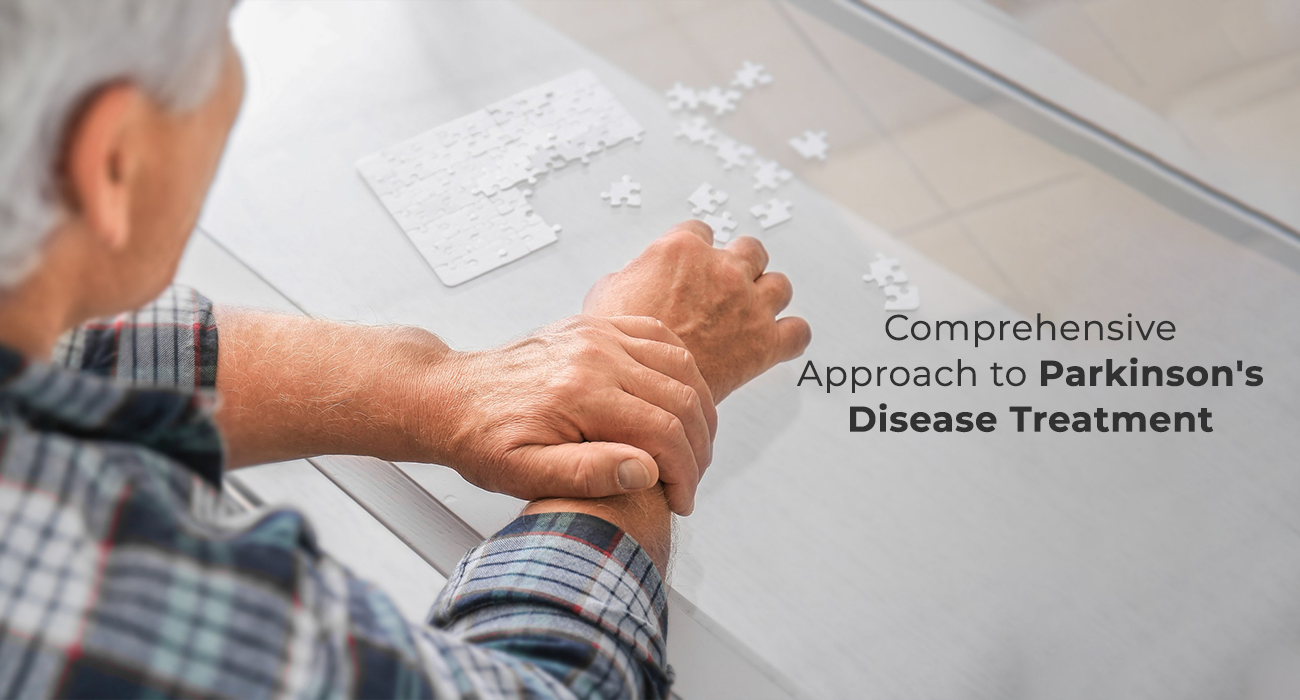Comprehensive Approach to Parkinson Disease Treatment
09/25/2023
Parkinson's disease is a complex neurological disorder that affects millions of people throughout the world. While there is no cure for Parkinson's, there is hope in the form of comprehensive treatment techniques that can dramatically enhance the quality of life for those living with the disease. In this blog, we will look at a holistic and compassionate approach to Parkinson's disease treatment, including medical treatments, lifestyle changes, and the power of a strong support network.
Parkinson's Disease: An Overview
Before delving into treatment, it's critical to understand the fundamentals of Parkinson's disease. This disorder predominantly affects the brain's dopamine-producing cells, resulting in tremors, stiffness, and slowness of movement. Non-motor symptoms such as mood swings, sleep difficulties, and cognitive abnormalities might also occur.
Comprehensive Parkinson’s Treatment
Medications
Medications are essential in the treatment of Parkinson's disease. One of the most regularly recommended medicines is levodopa, which is frequently coupled with carbidopa. It aids in the replenishment of dopamine levels in the brain, hence relieving motor symptoms. To control symptoms, other drugs such as dopamine agonists and MAO-B inhibitors may be utilized.
Deep Brain Stimulation (DBS)
Deep brain stimulation is an alternative for those who do not respond well to drugs or have major medication-related adverse effects. DBS is a surgical procedure that involves implanting electrodes in the brain to assist in regulating aberrant brain activity and improve motor performance.
Occupational and Physical Therapy
Physical and occupational therapy are critical in preserving mobility and independence. These therapies emphasize exercises, stretches, and coping skills.
Changes in Lifestyle
Regular Physical Activity
It is vital for those with Parkinson's disease. Exercise increases muscle strength, balance, and flexibility, lowering the chance of falling and improving general well-being. Walking, swimming, and yoga can all be extremely good.
Nutrition
A well-balanced diet is essential for Parkinson's disease management. An adequate diet can help avoid constipation, keep energy levels stable, and promote overall health. Some people find that a high-fibre diet and increased water consumption help with the digestive difficulties that are frequent in Parkinson's.
Sleep Hygiene
It is important in Parkinson's disease since sleep disruptions are widespread. Good sleep hygiene measures, such as keeping a regular sleep schedule and having a pleasant sleeping environment, can help enhance sleep quality.
Emotional Well-Being
Addressing emotional well-being is part of managing Parkinson's disease. Individuals can manage the emotional issues that commonly accompany the disease by joining groups, adopting relaxation techniques, and seeking counselling.
The Influence of a Support Network
A holistic approach to Parkinson's disease treatment goes beyond pharmacological and lifestyle factors. Friends and family's emotional support is extremely important for this. Caregivers play an important role in assisting and encouraging people with Parkinson's disease to retain their independence and quality of life.
Parkinson's support groups provide a secure area for patients to share their experiences, exchange coping skills, and gain emotional support. These groups can meet in person or online, giving individuals with varied levels of mobility flexibility.
Emerging Therapies and Promising Research
While there is no cure for Parkinson's disease, research is ongoing to offer positive results. Gene therapy and neuroprotective medicines are being studied as experimental treatments. Furthermore, advances in stem cell therapy and the development of neuroprotective medicines have the potential to delay the disease's course.
Conclusion
A comprehensive approach to Parkinson's disease treatment emphasizes the condition's varied nature. Medical therapies, lifestyle changes, and emotional support are all essential components of disease management. Individuals with Parkinson's disease can live fulfilling lives despite the problems they experience with the correct combination of medicines and a supportive network.
Remember that each person with Parkinson's disease is unique, and their treatment strategy should be adjusted to their specific requirements. We can enable persons impacted by Parkinson's disease to navigate their journey by taking a compassionate and holistic approach with resilience and optimism. We can continue to improve the quality of life for people living with this illness by working together. At Eternal Hospital, we’ve the best neurologists in Jaipur, specialized in enhancing the quality of life for individuals living with Parkinson's disease.

